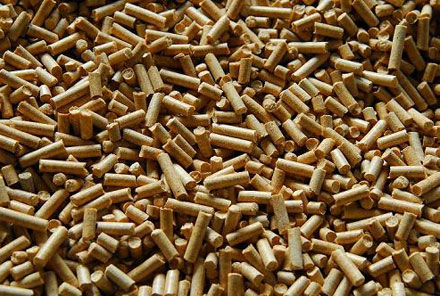
An Australian wood pellet processing plant in care and maintenance for the past five years is set to be recommissioned due to a low Australian dollar and increased international demand. Source: ABC Rural
Plantation Energy secured $7 million of funding from multinational energy company ENGIE to recommission the plant in Albany, on the south coast of Western Australia.
The three-year venture to secure funding was aided by advisory company Argonaut, which had been working with Plantation Energy owner Renewable Heat and Power Limited (RHP).
The plant will have the capability to produce 250,000 metric tonnes of wood pellets a year, making it the largest plant of its type in Australia. It will go into full production following a six-month trial period expected to begin in July.
Wood pellets are used in coal-fired power stations as a renewable energy replacement, with major markets in Europe and Japan.
The process of producing wood pellets involves making an energy dense wood pellet from sawmill residue and woodchips milled to less than 5mm in size.
Plantation Energy’s wood pellet plant was decommissioned in 2012 due to a lack of market demand, a high Australian dollar and issues with supply, making it difficult for the company to stay profitable.
Argonaut and RHP director Peter Balsarini said he was confident the business would be successful this time.
“We’ve [now] got clear certainty in relation to fibre supply and also some of those economic variables are now better suited to export volumes of wood pellets,” he said.
Mr Balsarini said the company had a long-term agreement with funding partner ENGIE for supply, should the six month trial period be successful.
ENGIE is one of the world’s largest biomass and wood pellet suppliers.
There is only one other major wood pellet supplier in Australia — Brisbane-based Altus Renewables, which can produce up to 125,000 metric tonnes of densified fuel pellets annually.
Other companies are also exploring potential in Tasmania.
Mr Balsarini believed there was potential for the wood pellet industry to develop even further in Australia.
“There’s other fibre baskets obviously, like the green triangle on the border of South Australia and Victoria,” he said, adding that parties in Tasmania were also exploring opportunities.
“I do think that you could see some expansion [but] I do think it is a large amount of fibre that you require.
“Once you put a significant pellet production facility in all of those fibre baskets I think you might tap the resource out, so to speak.”
He said there were also potential opportunities for the Albany plant to expand in the future.
Mr Balsarini said the recommissioning of the Albany plant was expected to bring in 30 new jobs once it was in full production.
With no space in its port to stockpile available product, Plantation Energy will be loading straight to ships, something Mr Balsarini said would be logistically challenging but he believed was possible.





